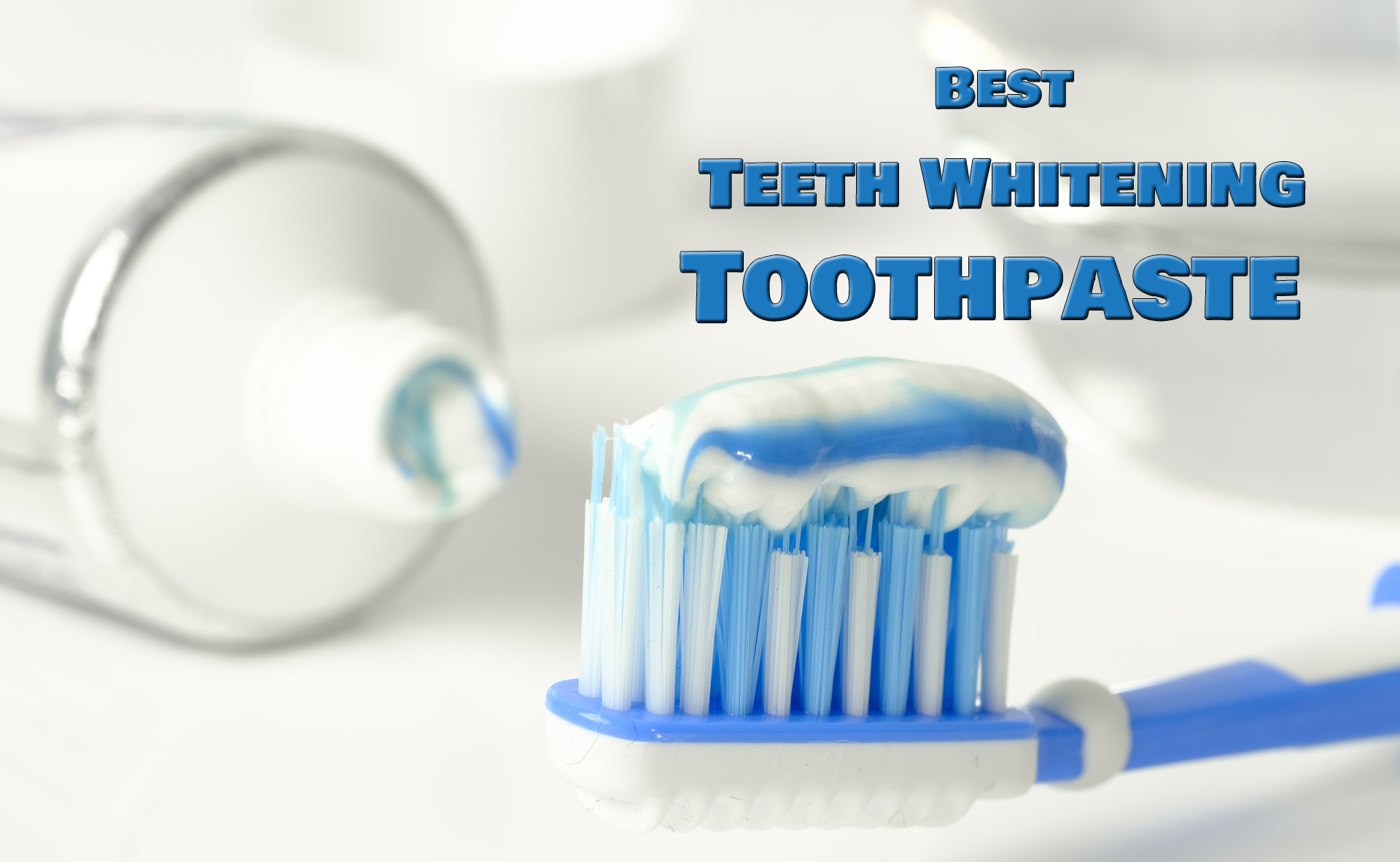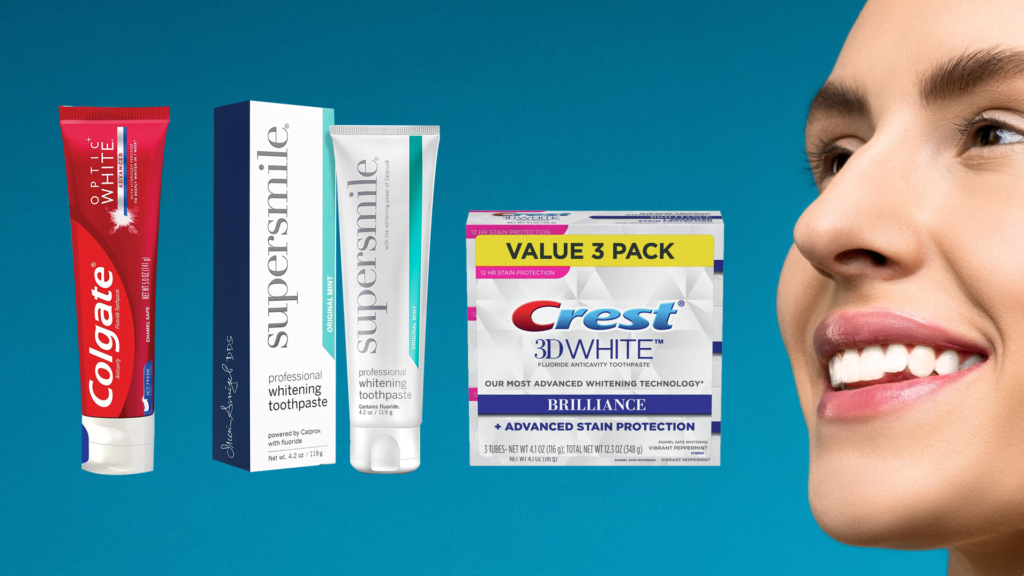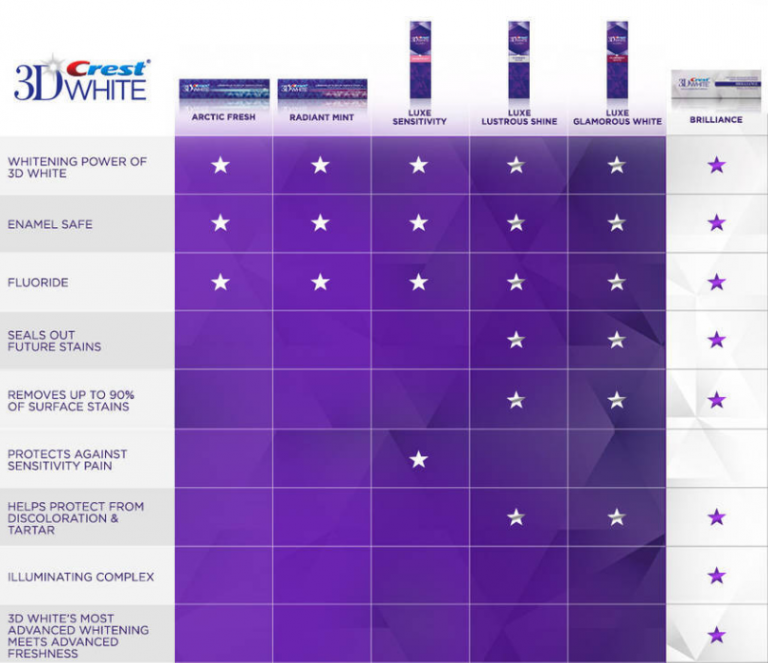Whitening toothpaste has become one of the most sought-after oral care products in recent years, as more people seek solutions to achieve a brighter, healthier smile. Whether you're dealing with surface stains from coffee, tea, or smoking, or simply want to enhance the natural whiteness of your teeth, finding the best toothpaste for whitening can make a significant difference. But with so many options on the market, how do you choose the right one? In this article, we’ll explore everything you need to know about toothpaste for whitening, including ingredients, effectiveness, and top recommendations.
Oral hygiene is not just about brushing your teeth twice a day; it's about using the right products that cater to your specific dental needs. For those who prioritize teeth whitening, selecting the best toothpaste is crucial. However, it's important to understand that not all whitening toothpaste is created equal. Some may promise quick results but lack the necessary ingredients to deliver long-term benefits.
This guide will provide you with expert insights, authoritative information, and trustworthy recommendations to help you make an informed decision. Whether you're looking for affordable options or premium formulas, we’ve got you covered. Let’s dive in!
Read also:Comfortable High Heels For Flat Feet A Comprehensive Guide
Table of Contents
- Overview of Whitening Toothpaste
- How Whitening Toothpaste Works
- Key Ingredients in Whitening Toothpaste
- Best Whitening Toothpaste Brands
- Choosing the Right Toothpaste for You
- FDA Approval and Safety Considerations
- Top 10 Whitening Toothpaste Options
- Whitening Toothpaste vs. Professional Treatments
- Common Mistakes to Avoid
- Conclusion and Final Thoughts
Overview of Whitening Toothpaste
Whitening toothpaste has revolutionized the way people approach oral care. Unlike regular toothpaste, which focuses primarily on cleaning and cavity prevention, whitening toothpaste is specifically formulated to remove surface stains and enhance the natural whiteness of teeth. These products are designed to address common concerns such as discoloration caused by food, drinks, and lifestyle habits.
One of the key benefits of whitening toothpaste is its accessibility. Unlike professional treatments, which can be expensive and time-consuming, whitening toothpaste offers a convenient and affordable solution for everyday use. However, it's essential to understand the limitations of these products. While they can effectively remove surface stains, they may not address deeper discoloration caused by factors such as aging or medication.
Why Choose Whitening Toothpaste?
- Removes surface stains caused by coffee, tea, and smoking
- Enhances natural tooth whiteness
- Convenient for daily use
- Affordable compared to professional treatments
How Whitening Toothpaste Works
The effectiveness of whitening toothpaste lies in its formulation. Most whitening toothpaste contains mild abrasives, such as calcium carbonate or silica, which help scrub away surface stains. Some products also include chemical agents, such as hydrogen peroxide or carbamide peroxide, which break down stains at a molecular level.
However, it's important to note that whitening toothpaste does not bleach the teeth. Instead, it works by polishing the surface and removing discoloration. This makes it a safer alternative to harsh bleaching treatments, but it may take longer to achieve visible results. Consistency is key when using whitening toothpaste, as it requires regular use over time to produce noticeable improvements.
Common Whitening Mechanisms
- Mild abrasives for surface stain removal
- Chemical agents for deeper stain breakdown
- Fluoride for cavity prevention and enamel strengthening
Key Ingredients in Whitening Toothpaste
When evaluating the best toothpaste for whitening, it's crucial to pay attention to the ingredients. The right combination of active ingredients can make a significant difference in the product's effectiveness. Below are some of the most common ingredients found in whitening toothpaste:
- Hydrogen Peroxide: A mild bleaching agent that helps break down stains.
- Carbamide Peroxide: Another bleaching agent often used in professional treatments.
- Calcium Carbonate: A mild abrasive that polishes the tooth surface.
- Silica: A gentle abrasive that helps remove surface stains.
- Fluoride: Essential for cavity prevention and enamel strengthening.
It's important to choose toothpaste that contains fluoride, as it helps protect your teeth from cavities while enhancing whiteness. Additionally, ensure that the product is approved by reputable dental organizations, such as the American Dental Association (ADA).
Read also:What To Wear Under See Through Skirts The Ultimate Guide For Fashionistas
Best Whitening Toothpaste Brands
Several well-known brands specialize in producing high-quality whitening toothpaste. These brands invest in research and development to ensure their products are both effective and safe for everyday use. Below are some of the top brands to consider:
- Colgate Optic White: Known for its range of whitening toothpaste options, Colgate Optic White is a popular choice for those seeking a brighter smile.
- Crest 3D White: Crest offers a variety of whitening toothpaste formulations, each designed to target specific dental concerns.
- Sensodyne Pronamel Whitening: Ideal for individuals with sensitive teeth, this toothpaste combines whitening power with enamel protection.
Factors to Consider When Choosing a Brand
- Reputation and customer reviews
- ADA approval and safety certifications
- Specific ingredients tailored to your needs
Choosing the Right Toothpaste for You
Selecting the best toothpaste for whitening requires careful consideration of your individual needs. Factors such as sensitivity, enamel strength, and lifestyle habits can influence which product is most suitable for you. Below are some tips to help you make an informed decision:
- Look for toothpaste with fluoride for cavity protection.
- Choose a product with mild abrasives for gentle stain removal.
- Consider toothpaste specifically formulated for sensitive teeth if needed.
- Read customer reviews and consult with your dentist for personalized recommendations.
Personalizing Your Toothpaste Choice
Every individual's dental needs are unique. For example, if you have sensitive teeth, you may want to opt for a toothpaste designed to address both sensitivity and whitening. Similarly, if you consume a lot of staining foods and beverages, you may benefit from a toothpaste with stronger stain-fighting capabilities.
FDA Approval and Safety Considerations
When purchasing whitening toothpaste, it's essential to ensure that the product is safe for regular use. In the United States, the Food and Drug Administration (FDA) regulates toothpaste as a cosmetic product, ensuring that it meets specific safety standards. Additionally, many toothpaste brands seek approval from the American Dental Association (ADA) to further validate their effectiveness and safety.
While whitening toothpaste is generally safe, excessive use of abrasive products can lead to enamel erosion over time. It's important to follow the recommended usage guidelines and consult with your dentist if you experience any discomfort or sensitivity.
Safety Tips for Using Whitening Toothpaste
- Follow the recommended usage instructions on the packaging.
- Limit use to twice a day to avoid enamel damage.
- Consult with your dentist if you have sensitive teeth or existing dental conditions.
Top 10 Whitening Toothpaste Options
Here are ten of the best toothpaste options for whitening, each with its unique features and benefits:
1. Colgate Optic White Express White
Colgate Optic White Express White is a fast-acting formula that delivers noticeable results in just three days. It contains gentle abrasives and fluoride for effective stain removal and cavity protection.
2. Crest 3D White Luxe Glamorous White
Crest 3D White Luxe Glamorous White is a premium option that combines hydrogen peroxide with mild abrasives for superior whitening power. It's designed to target tough stains while protecting enamel.
3. Sensodyne Pronamel Whitening
Ideal for individuals with sensitive teeth, Sensodyne Pronamel Whitening offers a gentle yet effective solution for achieving a brighter smile. It contains fluoride and potassium nitrate to strengthen enamel and reduce sensitivity.
4. Aquafresh Whitening
Aquafresh Whitening is a budget-friendly option that provides excellent value for money. It contains mild abrasives and fluoride to remove stains and protect against cavities.
5. Arm & Hammer Advance White Extreme Whitening
Arm & Hammer Advance White Extreme Whitening harnesses the power of baking soda to remove surface stains and enhance tooth whiteness. It's a popular choice for those who prefer natural ingredients.
6. Tom's of Maine Antiplaque & Whitening
Tom's of Maine Antiplaque & Whitening is a natural toothpaste option that uses silica and fluoride to remove stains and prevent cavities. It's free from artificial flavors, colors, and preservatives.
7. Orajel Whitening Toothpaste
Orajel Whitening Toothpaste is a gentle formula designed for everyday use. It contains mild abrasives and fluoride to remove stains and protect enamel.
8. Rembrandt Whitening Toothpaste
Rembrandt Whitening Toothpaste is a professional-grade product that delivers impressive results. It contains hydrogen peroxide and calcium peroxide for deep stain removal.
9. Supersmile Professional Whitening Toothpaste
Supersmile Professional Whitening Toothpaste is a luxury option that combines advanced technology with natural ingredients. It's designed to remove stains and enhance whiteness while protecting enamel.
10. Sensodyne Pronamel Daily Protection
Sensodyne Pronamel Daily Protection is a versatile toothpaste that offers both whitening and sensitivity relief. It contains fluoride and calcium phosphate to strengthen enamel and reduce discomfort.
Whitening Toothpaste vs. Professional Treatments
While whitening toothpaste is an excellent option for everyday use, it may not deliver the same level of results as professional treatments. Professional treatments, such as in-office bleaching or custom whitening trays, often use stronger concentrations of bleaching agents to achieve faster and more dramatic results.
However, professional treatments can be expensive and may require multiple visits to the dentist. Whitening toothpaste, on the other hand, offers a cost-effective and convenient solution for maintaining a brighter smile. It's important to weigh the pros and cons of each option based on your budget, time constraints, and desired level of whitening.
Comparing the Two Options
- Whitening Toothpaste: Affordable, convenient, and suitable for everyday use.
- Professional Treatments: More effective but costly and time-consuming.
Common Mistakes to Avoid
While using whitening toothpaste can be a great way to enhance your smile, there are some common mistakes to avoid:
- Overusing abrasive products, which can lead to enamel erosion.
- Ignoring proper brushing techniques, which can reduce the effectiveness of the toothpaste.
- Not maintaining a balanced diet and oral hygiene routine, which can counteract the benefits of whitening toothpaste.
By following these tips and using whitening toothpaste as part of a comprehensive oral care routine


